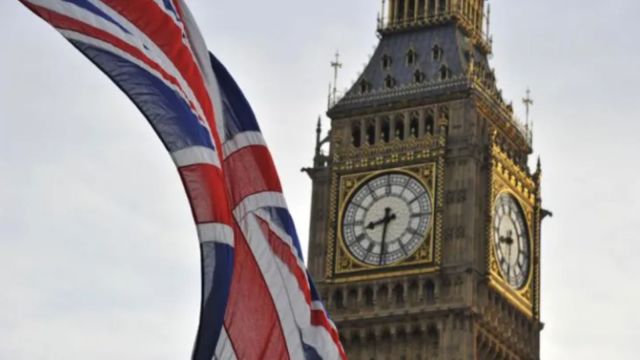Stay updated with the latest - Click here to follow us on Instagram
What is UK’s ‘deport now, appeal later’ scheme and why it now includes India
This week, Home Secretary Yvette Cooper announced the scheme will now cover 15 additional countries, bringing the total to 23.
 Home Secretary Yvette Cooper says expansion of the scheme is to prevent foreign criminals from "exploiting our immigration system" and "fast-track" their removals. (File Photo)
Home Secretary Yvette Cooper says expansion of the scheme is to prevent foreign criminals from "exploiting our immigration system" and "fast-track" their removals. (File Photo)
Indian nationals serving prison sentences in the UK who have active asylum appeals will now be eligible for removal before their claims are decided, under changes to the government’s ‘deport now, appeal later’ policy announced on Sunday.
The scheme is a fast-track removal policy aimed at sending foreign criminals out of the country before they can challenge their deportation in court from within Britain. Instead of allowing appeals to delay removals for months or even years, the policy lets the Home Office remove offenders first and have them take part in their appeal hearings remotely, usually via video link, from their home country.
The scheme applies to foreign nationals convicted of crimes in the UK who are citizens of specific countries with which Britain has legal or diplomatic agreements allowing such deportations. Once the Home Office decides to deport someone, they can be removed almost immediately, without waiting for their appeal to conclude.
While the offender can still challenge the decision, the process happens from outside the UK. They remain abroad for the duration of the appeal and if the court later rules in their favour, they may be allowed to return.
The government says this prevents “abuse” of the appeals system by offenders seeking to remain in the country as long as possible.
Expansion to more countries
This week, Home Secretary Yvette Cooper announced the scheme will now cover 15 additional countries, bringing the total to 23. New additions include India, Canada, and Australia, alongside Angola, Botswana, Brunei, Bulgaria, Guyana, Indonesia, Kenya, Latvia, Lebanon, Malaysia, Uganda, and Zambia.
Previously, the scheme covered just eight countries. Cooper said the change would help “fast-track removals” and stop criminals from “exploiting our immigration system.”
Cooper said earlier that offenders were able to remain in the UK “for months or even years” while their cases worked through the appeals system.
“That has to end. Those who commit crimes in our country cannot be allowed to manipulate the system, which is why we are restoring control and sending a clear message that our laws must be respected and will be enforced,” she added.
As per the Guardian, in the year since Labour came to power in July 2024, 5,179 foreign nationals who had been convicted of crimes had been deported, a 14 per cent increase on the year before.
The other countries added to the scheme are:
- Angola
- Botswana
- Brunei
- Bulgaria
- Guyana
- Indonesia
- Kenya
- Latvia
- Lebanon
- Malaysia
- Uganda
- Zambia
Why India’s inclusion matters
India is the most significant of the new additions because Indian nationals are among the largest groups of foreign offenders in England and Wales — 320 prisoners as of June 2025, BBC reported. Under the new rules, eligible Indian offenders could be removed soon after sentencing and take part in appeals from India.
The move comes as the UK works with India on broader migration cooperation, but it could also create diplomatic challenges if New Delhi resists accepting certain deportees.
One key driver behind the expansion is the UK’s worsening prison overcrowding crisis. England and Wales are operating near full capacity, with more than 10,700 foreign offenders, around 12 per cent of the prison population.
Ministers say quicker removals will free up space, reduce costs (an average of £54,000 per prison place annually), and protect public safety. There are currently 774 prisoners from the newly added countries, about 7 per cent of all foreign inmates, who could become eligible for removal.
Albanians accounted for the largest share, with 1,193 inmates, followed by 707 Irish nationals, 320 Indians, and 317 Pakistanis.
The expanded scheme is part of a broader government push to accelerate deportations. Justice Secretary Shabana Mahmood has separately proposed allowing deportations immediately after sentencing, reducing the current threshold from serving 50 per cent of a sentence to 0 per cent, BBC reported.
In practice, this could mean offenders are sent home directly from court after being handed a prison sentence. Life-sentence prisoners, such as terrorists and murderers, would still serve their full term in the UK before being considered for deportation.
According to report by BBC, Prison governors will have the power to block removals if the offender poses a national security threat or is suspected of planning further crimes in the UK. Deportation can also be halted if it risks breaching Britain’s human rights obligations.
The Labour government says the policy is about restoring control and ensuring foreign criminals face swift consequences. “Those who commit crimes in our country cannot be allowed to manipulate the system,” said Cooper.
The opposition Conservatives support the expansion but argue Labour is not going far enough. Shadow home secretary Chris Philp called for a blanket policy to deport all foreign criminals, while shadow justice secretary Robert Jenrick urged using visa suspensions and foreign aid cuts to pressure uncooperative countries.
Foreign Secretary David Lammy said the government is working to add even more countries to the scheme in future.
- 01
- 02
- 03
- 04
- 05
































